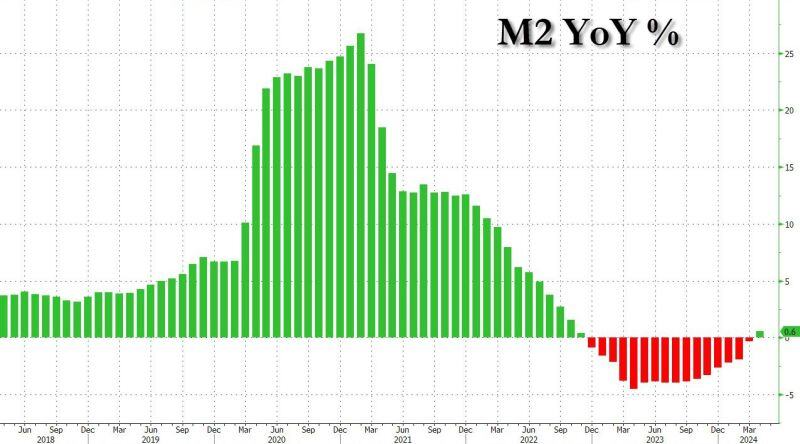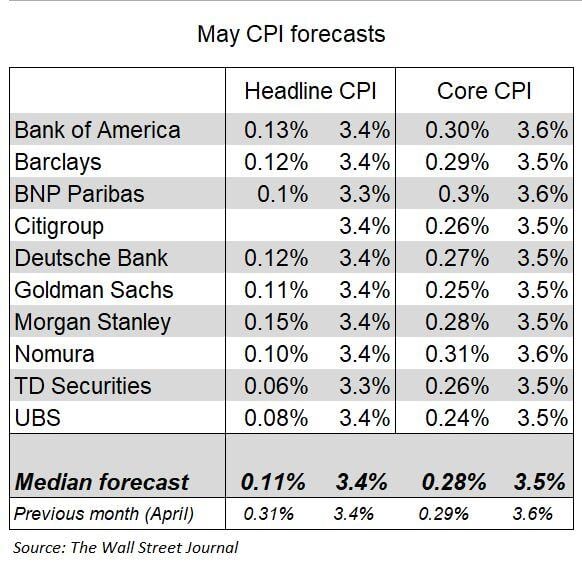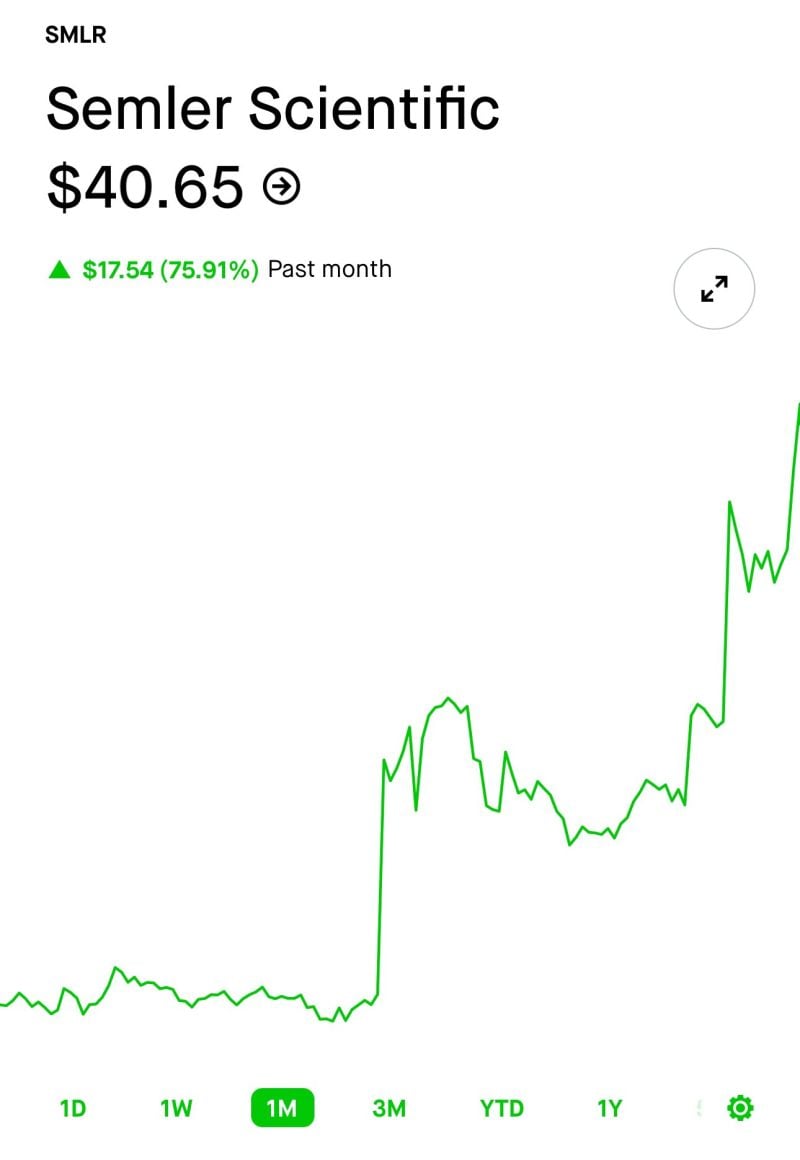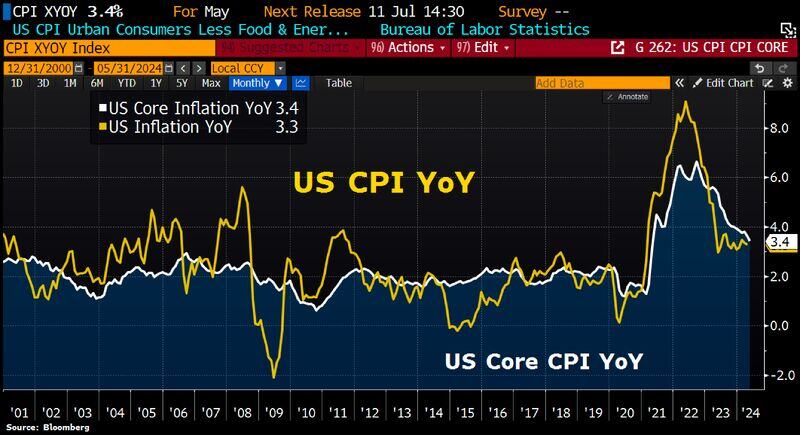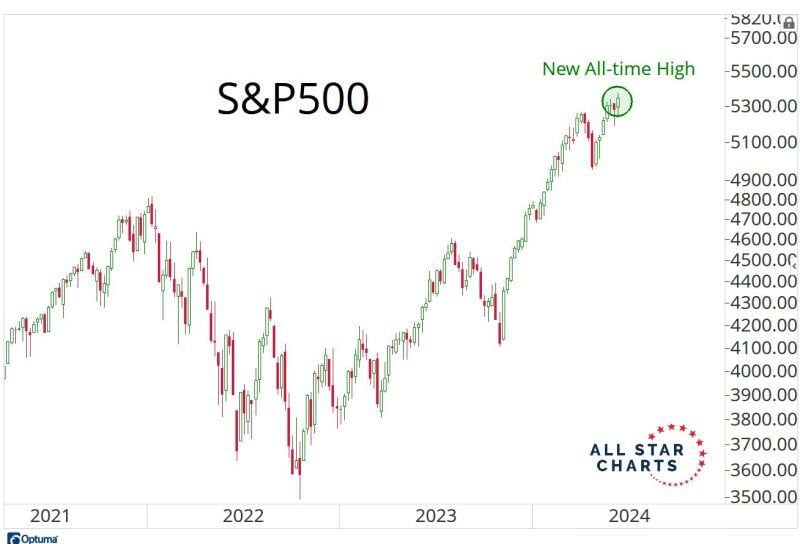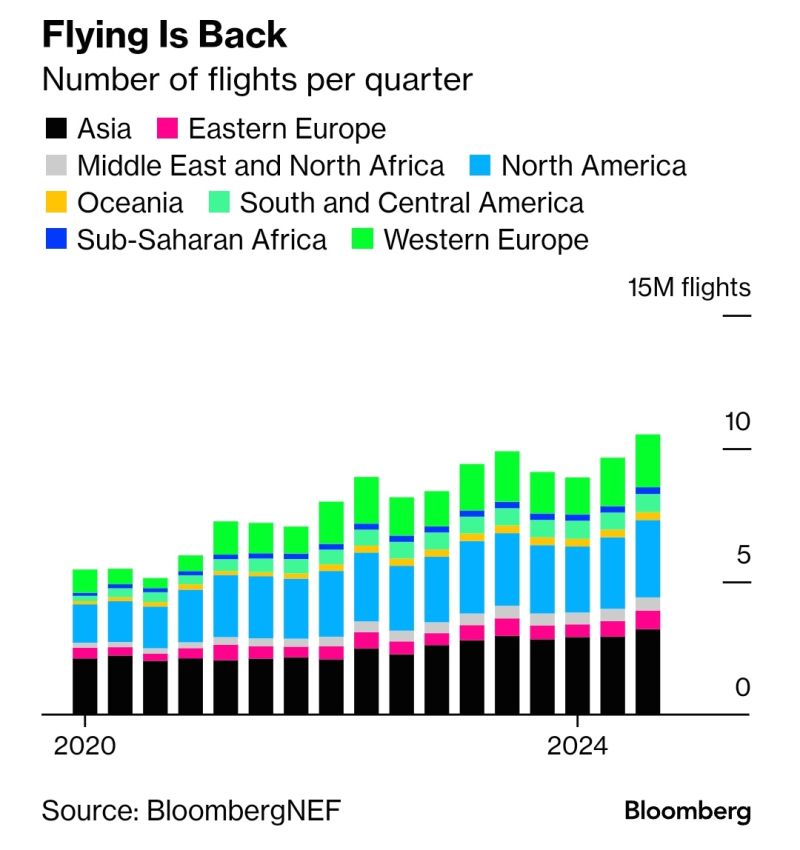Straight from the Desk
Syz the moment
Live feeds, charts, breaking stories, all day long.
- All
- equities
- United States
- Macroeconomics
- Food for Thoughts
- markets
- Central banks
- Fixed Income
- bitcoin
- Asia
- europe
- investing
- geopolitics
- gold
- technical analysis
- Commodities
- AI
- Crypto
- Technology
- nvidia
- ETF
- earnings
- Forex
- china
- Real Estate
- oil
- banking
- energy
- Volatility
- magnificent-7
- apple
- Alternatives
- emerging-markets
- switzerland
- tesla
- United Kingdom
- Middle East
- amazon
- assetmanagement
- microsoft
- russia
- ethereum
- ESG
- meta
- Industrial-production
- bankruptcy
- Healthcare
- Turkey
- Global Markets Outlook
- africa
- Market Outlook
- brics
- performance
M2 is now positive in the US (with rates at 5.5%). Are rate cuts, QE and YCC just a matter of time?
Source: www.zerohedge.com, Bloomberg
Inflation forecasters see the core US CPI posting roughly a similar increase in May as in April.
An increase of 0.28% in the core CPI would lower the y/y rate to 3.5% Source: Nick Timiraos, Wall Street Journal
Semler Scientific ($SMLR) is up over 75% in the last month thanks to adopting a Bitcoin strategy.
Source: Walker⚡️@WalkerAmerica
Bonds, stocks, gold and cryptos rally following cooler-than-expected US inflation data.
May headline CPI slowed by 10bps to 3.3% YoY vs 3.4% expected. Core slowed 20bps to 3.4% vs 3.5% expected. Super Core CPI TURNED NEGATIVE (!) -0.05% MoM - its first drop since Sept 2021 (but that left the YoY level still above 5.0%). Details: CPI data for May 2024 • Inflation was softer than expected in May: headline 0.0% MoM vs +0.1% expected; “core” inflation +0.2% MoM (+0.163% unrounded) vs +0.3% expected • As a result, the yearly headline inflation rate is down to +3.3% (after +3.4% in April) and the “core” inflation rate is down to +3.4% (+3.6% in April), its lowest level in three years. • Inflation is still above the Fed’s target of 2% but the trend toward slower inflation has resumed, after the upside surprises of the first quarter of the year. - Housing (shelter) inflation remains firm, but CPI inflation excluding shelter (+2.1% YoY%) is now back (almost) at the level targeted by the Fed. - Inflation in services, that has been strong in the previous months, is finally slowing down (+0.2% in May vs +0.4% in April and +0.5% in March). - Prices of durable and nondurable goods have declined in May (-0.5% and -0.4% respectively). • Those data confirm our scenario of a gradual disinflationary trend at play in the US, as labor market tensions ease and consumer demand loses some momentum. Impact on the hashtag#Fed • Following the release, and ahead of the Fed’s meeting tonight, the probability of a Fed rate cut in September has increased to 62%, • A Fed rate cut at the November meeting (two days after the US Presidential elections) is now fully priced in. • Future markets also fully price a second rate cut at the December meeting. • After the FOMC meeting tonight (no rate cut expected), Fed’s members will update their economic and rate projections. • Those CPI data are probably a relief for the Fed and will likely prevent hawkish surprises and significant revisions to the upside on the expected path of Fed Fund rates in 2024 and 2025. Source: HolgerZ, Bloomberg
“Should you find yourself in a chronically leaking boat, energy devoted to changing vessels is likely to be more productive than energy devoted to patching leaks.”- Warren Buffett
Source: Masterinvest.com
Short bets against Nvidia $NVDA hit $34 billion, almost double the total short bets against Apple $AAPL and Tesla $TSLA
Source: Barchart
The SP500 closed the week at new all-time highs.
And a whopping 33 stocks on the NYSE closed at new highs. That's only 1.4% of stocks on the most important exchange in the world hitting new highs. Source: J.C. Parets @allstarcharts
Flying is back. International travel is set to see the biggest surge.
That’ll grow by 9.7% this year with huge increases in Asia, Europe and North America. International flights from Asia should climb by 23% but there are substantial gains almost everywhere. Source: Bloomberg, Tracy (𝒞𝒽𝒾 )
Investing with intelligence
Our latest research, commentary and market outlooks


